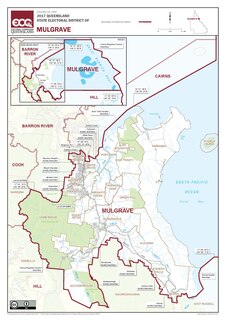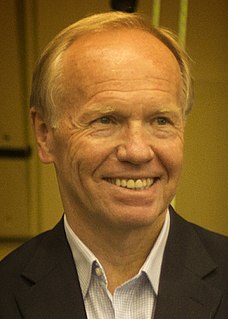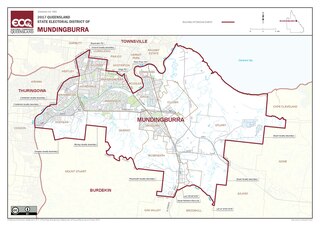| |||||||||||||||||||||||||||||||||||||||||
All 89 seats in the Legislative Assembly of Queensland 45 Assembly seats were needed for a majority | |||||||||||||||||||||||||||||||||||||||||
|---|---|---|---|---|---|---|---|---|---|---|---|---|---|---|---|---|---|---|---|---|---|---|---|---|---|---|---|---|---|---|---|---|---|---|---|---|---|---|---|---|---|
| |||||||||||||||||||||||||||||||||||||||||
| |||||||||||||||||||||||||||||||||||||||||
Elections were held in the Australian state of Queensland on 13 June 1998 to elect the 89 members of the state's Legislative Assembly.

Australia, officially the Commonwealth of Australia, is a sovereign country comprising the mainland of the Australian continent, the island of Tasmania and numerous smaller islands. It is the largest country in Oceania and the world's sixth-largest country by total area. The neighbouring countries are Papua New Guinea, Indonesia and East Timor to the north; the Solomon Islands and Vanuatu to the north-east; and New Zealand to the south-east. The population of 25 million is highly urbanised and heavily concentrated on the eastern seaboard. Australia's capital is Canberra, and its largest city is Sydney. The country's other major metropolitan areas are Melbourne, Brisbane, Perth and Adelaide.

Queensland is the second-largest and third-most populous state in the Commonwealth of Australia. Situated in the north-east of the country, it is bordered by the Northern Territory, South Australia and New South Wales to the west, south-west and south respectively. To the east, Queensland is bordered by the Coral Sea and Pacific Ocean. To its north is the Torres Strait, with Papua New Guinea located less than 200 km across it from the mainland. The state is the world's sixth-largest sub-national entity, with an area of 1,852,642 square kilometres (715,309 sq mi).

The Legislative Assembly of Queensland is the sole chamber of the unicameral Parliament of Queensland. Elections are held every four years. Voting is by the full-preferential voting form of the alternative vote system. The Assembly has 93 members, who have used the letters MP after their names since 2000.
Contents
- Background
- Key dates
- Results
- Seats changing hands
- Post-election pendulum
- Polling
- See also
- References
The result of the election was a second consecutive hung parliament, with the Labor Party forming minority government after receiving the support of independent Peter Wellington. This election was the first in which One Nation supporters were elected to state Parliament, with the controversial party winning 11 seats. With nearly 23% of the vote, One Nation gained a higher percentage of the vote than any other third party (i.e. not Labor or Coalition) at the state or territory level since Federation. This was also the only election at which a third party gained more votes than both the Liberal Party and the National Party considered separately. Unlike in previous elections, no attempt was made to calculate the statewide two-party preferred vote (2PP), because the One Nation vote was so high that any 2PP result would have been meaningless.
A hung parliament is a term used in legislatures under the Westminster system to describe a situation in which no particular political party or pre-existing coalition has an absolute majority of legislators in a parliament or other legislature. This situation is also known, albeit less commonly, as a balanced parliament, or as a legislature under no overall control, and can result in a minority government. The term is not relevant in multi-party systems where it is rare for a single party to hold a majority.

The Australian Labor Party , commonly known as Queensland Labor is the Queensland branch of the Australian Labor Party.
A minority government, or minority cabinet or minority parliament, is a cabinet formed in a parliamentary system when a political party or coalition of parties does not have a majority of overall seats in the parliament. It is sworn into office, with or without the formal support of other parties, to enable a government to be formed. Under such a government, legislation can only be passed with the support of enough other members of the legislature to provide a majority, encouraging multi-partisanship. In bicameral parliaments, the term relates to the situation in chamber whose confidence is considered most crucial to the continuance in office of the government.
A few months after the election, the One Nation member for Mulgrave, Charles Rappolt resigned. Labor won the ensuing by-election, allowing it to form government with a bare majority of 45 seats.

Mulgrave is an electoral district of the Legislative Assembly in the Australian state of Queensland.
Charles Robert "Charlie" Rappolt was an Australian politician. A member of Pauline Hanson's One Nation Party, Rappolt spent five turbulent months in the Parliament of Queensland in 1998.
The fact that the Coalition Government came to office as a direct result of the 1996 Mundingburra by-election instead of the general election the previous year, as well as its failure to win in its own right at the 1998 election, meant that the 1998 election was the fourth consecutive election victory for the Queensland Branch of the ALP, which had won every election since 1989.









